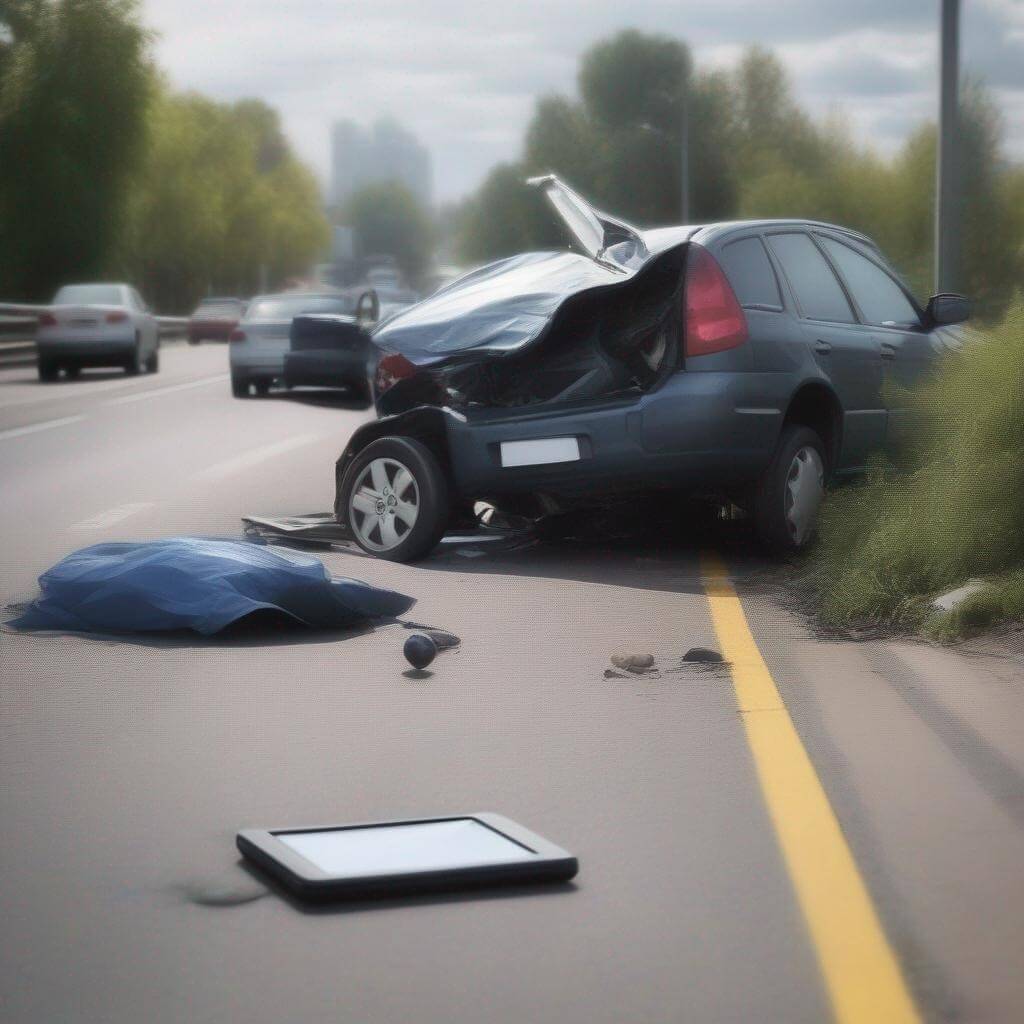When involved in a car accident, it’s crucial to take immediate actions and follow specific legal steps to protect your health, safety, and legal rights. Here’s an essential guide on what to do immediately after a car accident and the subsequent legal steps.
Immediate Actions Post-Accident
- Check for Injuries: Immediately check if you or anyone else involved in the accident is injured. Call 911 if there are any injuries, no matter how minor they may seem.
- Move to Safety: If the accident is minor and there are no serious injuries, move vehicles to the side of the road, if possible, to avoid blocking traffic. Turn on your hazard lights.
- Call the Police: Even for minor accidents, it’s important to call the police. They will file an accident report, which is crucial for insurance claims and legal purposes.
- Exchange Information: Exchange names, addresses, phone numbers, insurance information, driver’s license numbers, and license plate numbers with all parties involved. Also, gather contact information from witnesses.
- Document the Accident: Take photos of the accident scene, including all vehicles involved, any visible damages, road conditions, traffic signs, and injuries. These can be crucial for insurance claims and legal actions.
- Do Not Admit Fault: Be careful not to admit fault at the scene. The determination of fault should be left to the police and insurance companies after they have reviewed all the evidence.
Legal Steps After the Accident
- Report the Accident to Your Insurance Company: Inform your insurance company about the accident as soon as possible. Provide them with all the necessary information and cooperate fully.
- Seek Medical Attention: Even if you feel fine, it’s important to see a doctor after an accident. Some injuries, like whiplash, may not be immediately apparent.
- Keep Records: Keep all records related to the accident, including medical bills, repair estimates, and any correspondence with insurance companies.
- Consider Consulting an Attorney: If there are disputes over fault, injuries, or significant damage, consulting with a personal injury attorney can be beneficial. They can guide you through the legal process and help protect your rights.
- Follow Legal Proceedings: If the accident leads to legal action, ensure you follow all court requirements and deadlines. Your attorney can help navigate these proceedings.
- Understand the Statute of Limitations: Be aware of the statute of limitations in your state for filing a lawsuit related to the car accident. Missing this deadline can bar you from seeking compensation for damages.
Dealing with Insurance Companies
- Understand Your Policy: Familiarize yourself with your insurance policy’s terms, especially regarding coverage limits, deductibles, and the process for filing a claim.
- File a Claim Promptly: There’s often a window within which you must report the accident to your insurer. Failing to do so in a timely manner can result in the denial of your claim.
- Document Everything: Keep detailed records of all communications with insurance companies, including dates, names of representatives you spoke with, and the content of your discussions.
- Review Settlement Offers Carefully: Before accepting any settlement offer from an insurance company, make sure it fully covers your damages and losses. Consult with a lawyer if you’re unsure about the fairness of the offer.
Understanding Your Rights
- Right to Compensation: You have the right to be compensated for damages caused by another driver’s negligence. This includes property damage, medical expenses, lost wages, and, in some cases, pain and suffering.
- Right to Legal Representation: You have the right to hire an attorney to represent you in dealings with insurance companies and any legal proceedings. An experienced attorney can advocate for your best interests.
- Right to Refuse Quick Settlements: Insurance companies often offer quick settlements to close cases fast. You have the right to refuse these offers if they don’t adequately cover your damages.
Long-Term Considerations
- Recovery and Rehabilitation: Focus on your physical and emotional recovery. Attend all medical appointments, and follow through with prescribed treatments and rehabilitation.
- Impact on Insurance Premiums: Understand that your insurance premiums might increase after an accident, especially if you’re deemed at fault. Discuss with your insurance agent how the accident affects your rates.
- Defensive Driving Courses: Consider taking a defensive driving course. Not only can it improve your driving skills and safety awareness, but it may also qualify you for discounts on your car insurance.
- Review and Adjust Your Insurance Policy: Post-accident is a good time to review your insurance policy to ensure it meets your needs. Consider adjusting your coverage to better protect yourself in the future.
Conclusion
Navigating the aftermath of a car accident requires a thoughtful approach to ensure your physical, emotional, and financial well-being. By taking immediate actions, understanding and following through with the necessary legal steps, dealing effectively with insurance companies, and knowing your rights, you can manage the situation more effectively. Always prioritize your health and consult with professionals when needed to navigate the complex aspects of post-accident procedures and recovery.
